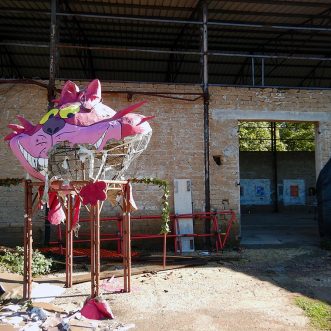
They are not you
There’s a very good reason why, as a Boss, you might balk at writing down your Customer Experience Score.
It’s not your style.
As the founder of your own small business, there’s a good chance you are a proactive, internally motivated, independent, options-oriented person. You probably hate the idea of following someone else’s instructions. After all, that may be a good part of why you set up on your own in the first place. To follow your own rules, do what you think is right, try out different ways of doing things.
Your style is brilliant for setting up a new venture, you’re happy to experiment until you get your offer and your customer experience right. And as long as its just you delivering it, things are fine.
The problems start to come as you take on new people, not to do the things you probably shouldn’t do, like bookkeeping or HR, or health and safety, but to act as if they were you in looking after prospects and clients.
But they are not you.
They don’t know what you know, they don’t have the history of how you got here, they don’t have your muscle memory of how to do things, and they almost certainly don’t work in your style.
Some of them will be more reactive than proactive. Some will be more procedures-oriented – they will be more comfortable following a process. Some will be more externally motivated – they will care more about what others think of them, about what you think of them.
None of this means they can’t do the job of looking after customers as well as you. Some will do it even better than you. It just means they won’t do it in exactly the same way as you, and they can’t learn how to in the same way you did – by working through it.
So, since like most of us, you are probably also a ‘my rules for me, my rules for you’ kind of person – what’s good for you is good for them – you assume that your people will just get in on with it. That having seen you do it, they’ll be able to do it themselves – exactly as you do. That they won’t want ‘to follow other people’s instructions’. And at the same time you worry that they will want to put their own spin on it, to do it their own way, not yours.
And that your clients wouldn’t like it if they did.
But that’s just not true.
This is not a judgement on you. This is just how it is. People are different, in interesting ways that can enhance or diminish the experience for your clients.
You want to minimise the possibility of diminishing, but with ‘my way or the highway’ you minimise the possibility of enhancing too.
A much more satisfying approach is to get your vision of your ideal customer experience out of your head, and onto ‘paper’, not as ‘instructions’, but as a guide, like music, what I call a ‘Customer Experience Score’.
A Score that doesn’t dot all the i’s and cross all the t’s, or tell people what to do in excruciating detail. That doesn’t dictate their every move, but tells them clearly and simply, visually, what has to happen, when, for the customer, leaving the details of execution to them.
The good news is that as an options person, you quite like setting up processes, you just don’t like following them. So this job is perfect for you.
And when you’re done, you can share the work of caring for customers with more of your team, safe in the knowledge that they won’t go wrong, but they can be more right.
You’ll all be happier for it.
And so will your customers.
Discipline makes Daring possible.









One of the first things a professional de-clutterer will do is get rid of ‘duplicates’.
This is a strictly utilitarian view, that says one cake-slice is much like another, and ignores all the possible reasons why you might end up with 10 of them.
You might have received one as a gift, or inherited one from a parent or friend. You might have had to rush out and buy new because you couldn’t put your hand on one just when you needed it. You might have just liked the look of it.
Or you might simply be satisfying that very human urge for repetition with variation that encourages us to build collections.
All that makes choosing ‘the one’ that’s going to stay, emotional and just a bit stressful, especially if you’re made to feel judged by your inability to maintain a minimal lifestyle.
Which might be one reason I dislike de-cluttering TV programmes so much.
As you grow your small business, working out what your clients really want, and finding new ways to delight them, you acquire business processes like I acquire cake-slices.
You inherit them from your previous workplace, or maybe even the previous owner. A new employee gifts you a shiny new one. You cobble a new one together in a rush, because you can’t quite put your hand on the one you did earlier when you need it.
Or, as happens when we’re in the thick of it, it’s simply easier to focus on the differences between cases rather than the similarities.
Luckily, business processes aren’t like cake slices. We don’t have to choose.
We can combine the best features of all of them to create one beautiful and super-useful process, with all the emotion built in, and still with room enough to deal with a new kind of cake.
That means that when I work with clients, I can start by assuming we’re going to keep everything, and work on capturing and streamlining the most salient version – the one that happens most, or is the most difficult to hand over, or the most complicated.
Usually, by the time we’ve worked through that, the owner has realised that they don’t need all the others. This new process covers all the options.
We check to make sure of course. And if, on further inspection, it turns out we do need another version, we put that in place, reusing as much of the newly designed process as we can.
No stress. No agonising over what to keep and what to throw away. No being made to feel like you are in the wrong.
Just the relief of knowing that all that clutter is now out of your head, and out of the business too. Making it a calmer, clearer place to work for everyone, with added room for innovation.
Discipline makes Daring possible.
I’m Kirsten Gibbs, Boss Disappearer, and I can help you write your Customer Experience Score , to make your business easier to run, easier to grow and easier to build into a legacy you’ll be proud of.
Ask me how.